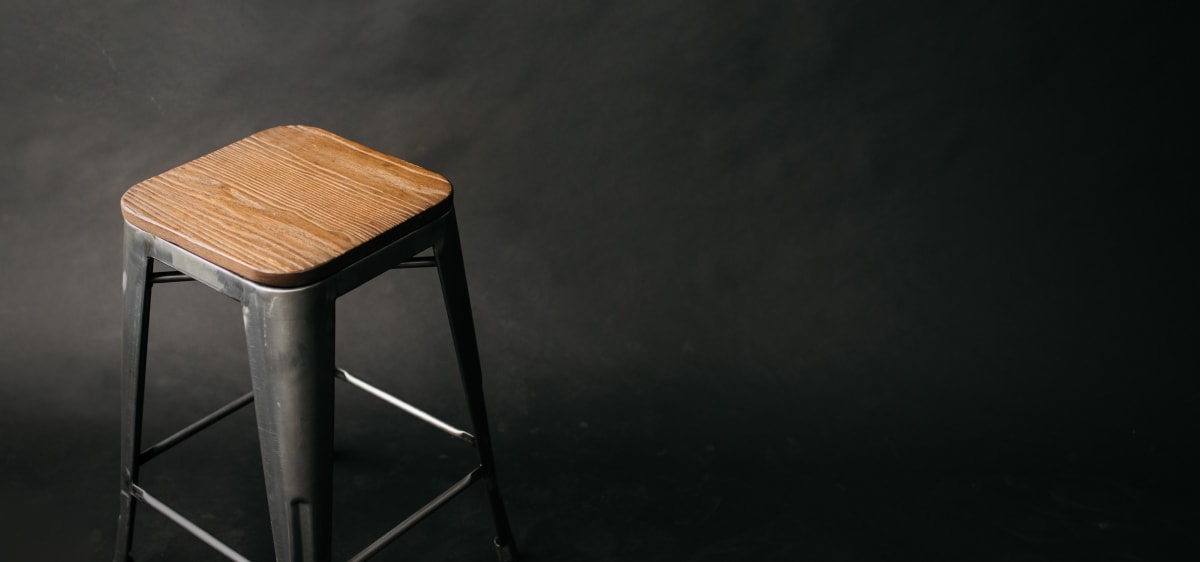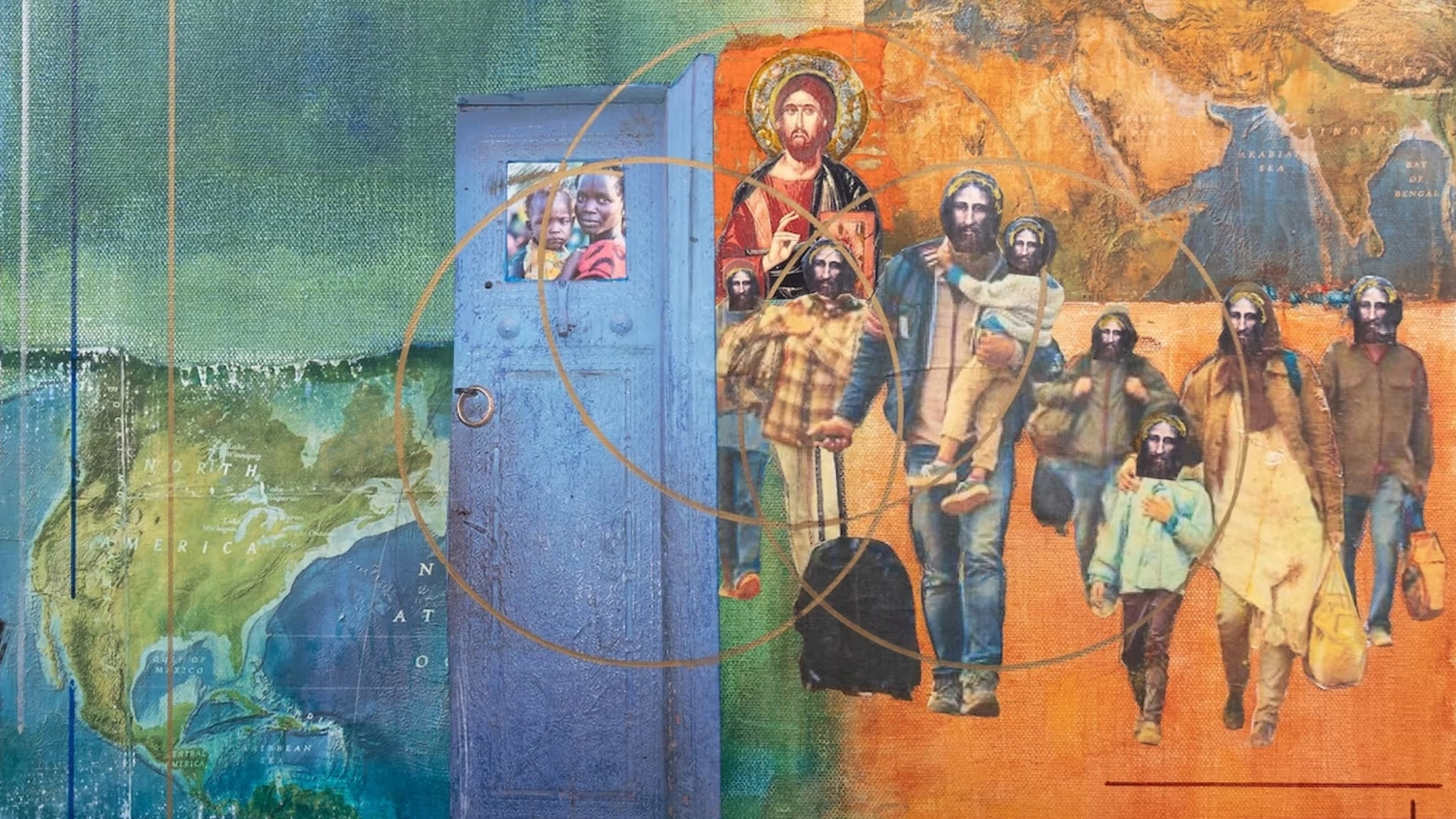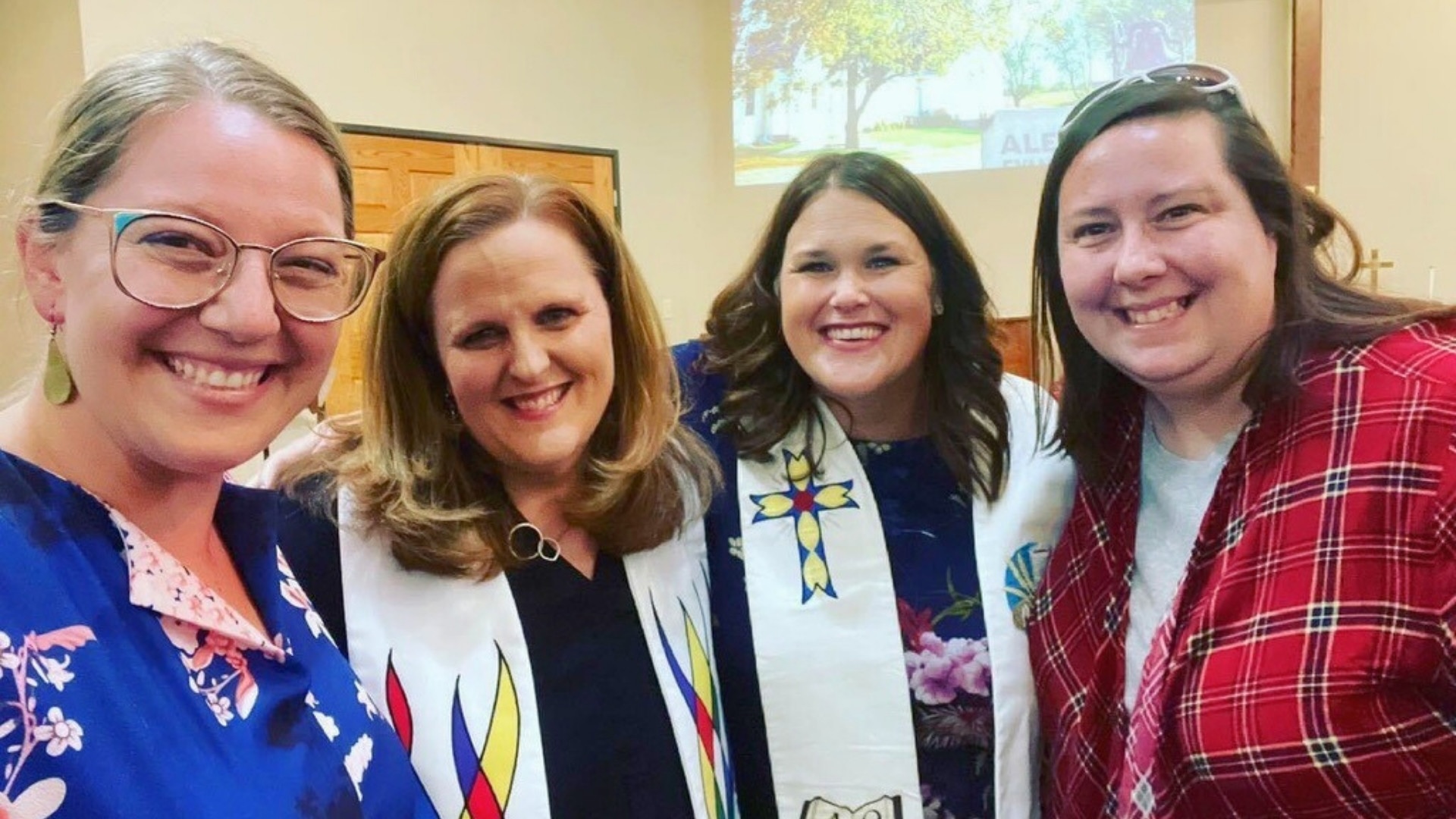The Holy and Unholy Chronicles of Life with Cancer
Cancer is the illness that seems to touch everyone—most of us have a friend or loved one who has traveled this journey. An experience with cancer often forces us to confront mortality and what matters in life while giving us time to consider those questions. These Covenanters graciously share a glimpse of their experience with “the big C.”
Kelly Johnston
Kelly Johnston is an ordained Covenant pastor currently living in Naperville, Illinois. She is deeply grateful for everyone who has been praying for her on this journey.
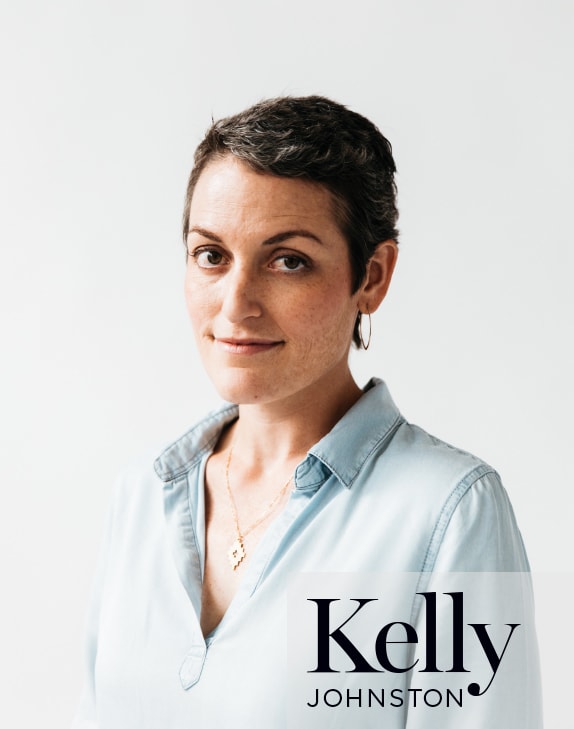
I often get teary looking at photos from the summer of 2017. It had been a year since I stepped away from full-time pastoral ministry to give birth to our third child and to intentionally spend a season at home with our young children. My husband, a teacher, had flexible employment for the summer and we went on all kinds of adventures without the constraints of daily work or a tiny newborn. Splashing in the nearby river, hiking the mountains of Colorado, exploring the streets of Chicago, setting up forts in our backyard, and just hanging out with friends and family whenever possible—those snapshots reveal the joy of living in the moment of each beautiful day.
I tear up when I look at those photos because now, looking back, I can see something else; the innocence and simplicity of life before cancer.
It’s not that I didn’t know anything about the disease or its treatment back then. As a pastor, I’ve prayed with parishioners after they got a diagnosis. I’ve sat in a chemotherapy treatment room as someone else got their infusion. I’ve performed funerals for church members who succumbed to the disease.
But until last year, I had been able to keep cancer at arm’s length. In fact, I’d been able to keep my distance from any major hardship. Sure, everyone’s life has its ups and downs. But I had been spared from struggles I’d seen many friends go through—severe depression, divorce, loss of a child. I often wondered when I’d be the one needing comfort rather than offering it.
Just a few weeks after my thirty-fourth birthday in October 2017, I found a lump in my breast. I was still nursing my youngest child and I have no family history of cancer, so with my glass-half-full perspective on life, I figured it must not be anything. But I wanted to make sure, so I got it checked out. My mom came with me for my ultrasound and mammogram and I warned her that the place was called a cancer center. But, I explained, “Just because that’s its name doesn’t mean I have cancer.” As if I knew what my results would be.
Life is not as simple or innocent as it once was.
The radiologist asked me to return to the cancer center the next day for a biopsy, and a few days later, in the middle of lunch preparations, I got the phone call I’d been waiting for. With hungry kids circling my legs, hands shaking, I managed to write it all down: invasive ductal carcinoma, triple positive. Cancer.
After a flurry of additional appointments and tests over the next few days, the news that had been a black cloud became a thunderstorm: my breast cancer had already spread to my liver. Later imaging confirmed that it was also present in parts of my spine.
There is no “cure” for what I have, metastatic breast cancer. But there are some great weapons against it. If I were facing this disease even three decades ago, I might not still be alive to write this article a year after my diagnosis. It’s hard to find words to say how grateful I am for this reality.
There are numbers that bounce around in my head. Five. Eight. Twenty. These are the numbers of years that doctors have told me women are still living with my same diagnosis and line of treatment. Those numbers turn into milestones for my children, and I wonder, will I see them graduate high school? Will I be at their weddings? Will I be a grandma?
I spent last winter enduring more-bearable-than-expected chemotherapy treatments every three weeks. My hair started falling out the day of my sons’ Christmas program at school. On Christmas Eve, after all three kids and all three houseguests had gone to bed, stockings had been stuffed, and presents all wrapped, my husband shaved my head for me in our tiny bathroom. We cried and laughed and prayed and the next day we celebrated Jesus’s birth with more tears, laughter, and prayers.
For now, chemotherapy is in the past, but I still take a pill every day and continue to visit that cancer center every three weeks for an infusion of medications that target my specific kind of breast cancer. Side effects are minimal, which is good, because I will continue with these treatments indefinitely to keep my disease at bay.
I got the incredible news in September that after ten months of prayers, medical care, and healthy eating, there were now no signs of cancer in my body. I am incredibly grateful that I get to live in this reality for now. My doctor says cancer will return one day, but hopefully it won’t be for a long time.
Meanwhile, I keep doing life with those three hungry little kids running circles around me. I have found that the adage “take it one day at a time” is great advice for a young mom doing a lot of active parenting, and it is great advice for someone living with disease. I find myself holding each day loosely before God, doing my best to trust him with it and thank him for it.
Life is not as simple or innocent as it once was. Cancer is in the picture now. But now I have pictures to look at from the summer of 2018, and they are beautiful. We went on adventures, we spent time with family and friends, and we continued to manage the new reality of cancer. Life has changed, but God’s faithfulness has not.
Dick Lucco
Dick Lucco recently completed his service as executive director of ministry development and is now special assistant to the president of the ECC. He will complete that assignment in December and is serving as a part-time associate pastor at Northwest Covenant Church in Mt. Prospect, Illinois.
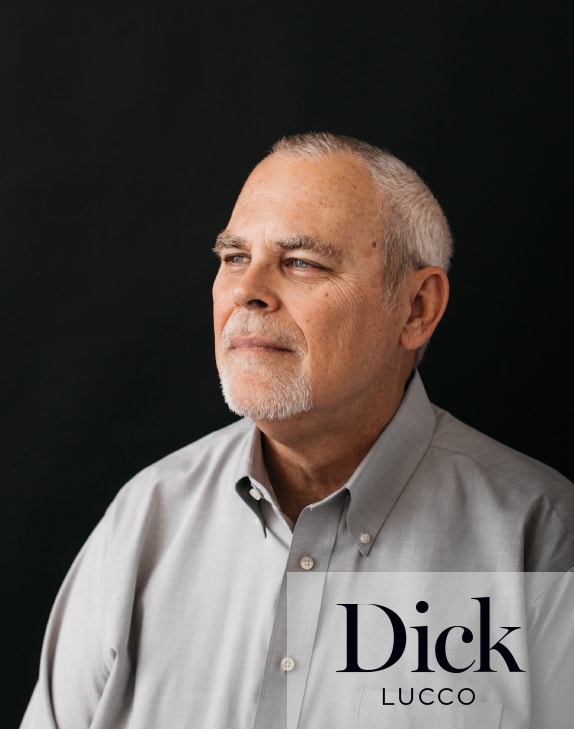
Sometimes I almost forget. But then I see it or sometimes just sense it. It is there in my peripheral vision—a shadow. A nagging worry. An anxious fear.
I have prostate cancer. I was diagnosed in February 2015. I chose radiation as the treatment—forty-four treatments, five days a week from early July until early September. The doctor said I would be fine, that there was a 90 percent cure rate. I remember thinking, “What about the other 10 percent?”
The following November the doctor called and said, based on some tests, I should have a bone scan and a CT scan. I was in the 10 percent.
The cancer had come back in my bones. The next step was to find a specialist. He told me there was no cure but there were good ways to treat it. The first step was hormone therapy—a shot every three months. That, he said, should be effective for a period of time—two to three years, maybe longer. When that didn’t work, there were other things we could do. He said I could live five to ten years, maybe longer. “Everybody’s different,” he said, “It is very hard to predict.”
So I live with the shadow. It is always there. Every three months I have blood work and go back to the doctor. Sometimes I almost forget, but then, two weeks before my next appointment, the shadow grows.
Kate Bowler teaches history at Duke Divinity School. And she has cancer. In her book Everything Happens for a Reason: And Other Lies I’ve Loved, she describes what it is like to live with the shadow as you have tests and see the doctor on a regular schedule: “I live for two months, take a deep breath, and hope to start over again.” That’s me, except I get three months.
Although I would not recommend this experience, I am learning some important lessons.
First, God is faithful, so I am learning to trust him. The day after the diagnosis my wife, Valerie, and I were in a bit of a daze, feeling confused and disoriented. We were listening to an audio devotional from the Pray As You Go app. Each day a passage of Scripture is read and listeners are invited to reflect on its meaning for our lives. I told Valerie before we listened that I needed something from God. The Scripture that day was Jeremiah 17:7-8:
But blessed are those who trust in the Lord, whose confidence is in him. They will be like a tree planted by the water that sends out its roots by the stream. It does not fear when heat comes; its leaves are always green. It has no worries in a year of drought and never fails to bear fruit.
I have been living with the promises of that word since the day I heard it. It has been a source of comfort and confidence. God has been faithful in so many ways. He has shown me Scripture when I needed it most, led me to books that have been helpful, provided people to encourage me (most of all, Valerie). He has allowed me to almost physically feel the prayers of his people, brought calm when I am anxious, and when the shadow moves from my peripheral vision to envelop me, he helps me not to be afraid.
So I live with the shadow.
It is always there.
Sometimes I almost forget.
Second, life is fragile so I am trying to live in the present. As a friend said to me recently, “All of us are terminal.” We are all, in the vernacular of sports when a player is injured, “day to day.” Understanding that truth helps me make the most of each day. It reminds me of the importance of relationships with family, friends, and colleagues. I say “I love you” more. I am reminded of how fortunate I am to be a husband, a dad, a grandfather, a friend, and a colleague. I notice the beauty and magnificence of creation. I am grateful for each day. In fact, I have started to write down what I am grateful for each day. I also am learning what is really important and what isn’t. The small stuff does not bother me as much. I focus on what is important.
Maya Angelou has written: “If you must look back, do so forgivingly. / If you must look forward, do so prayerfully. / However, the wisest thing you can do is be present / in the present…gratefully.”
I am learning to live with less regret about yesterday and less anxiety about tomorrow. I forgive more and worry less. Today is enough.
Third, hope is better than no hope, so I live hopefully. Cornel West says, “I cannot be an optimist but I am a prisoner of hope.” My natural tendency is to be a prisoner of discouragement, but I am learning that hope is a better place to live. And God is helping me be a more hopeful person. The apostle Paul writes in Romans 5:3-4: “suffering produces perseverance; perseverance character; and character hope.” I sense God is somehow doing that work in my life. I read that cardinals are a symbol of hope, so I surround myself with cardinals, most of them gifts from friends and colleagues.
So, I do my best to live hopefully in the present trusting God. I stumbled upon a Tibetan proverb soon after my diagnosis. “The secret to a long life is this: eat half, walk double, laugh triple, and love without measure.”
Whether my life is long or short I think that is a pretty good way to live.
Postscript
I finished writing this article several months ago. A short time later I went in for my three-month checkup. The blood tests indicated the hormone therapy was no longer working—not after two to three years as I had hoped, but after eighteen months. The scans showed four spots where the cancer was growing, two on my bones and two in my lymph glands. Not a good day.
But my doctor suggested a new medication. Based on the blood tests, it is working better than expected. O happy day. More blood tests and more scans next month. So, I am taking a deep breath, continuing to hope, living each day with gratitude, and learning to trust God.
David Beck
David Beck is lead pastor of Newport Covenant Church in Bellevue, Washington.
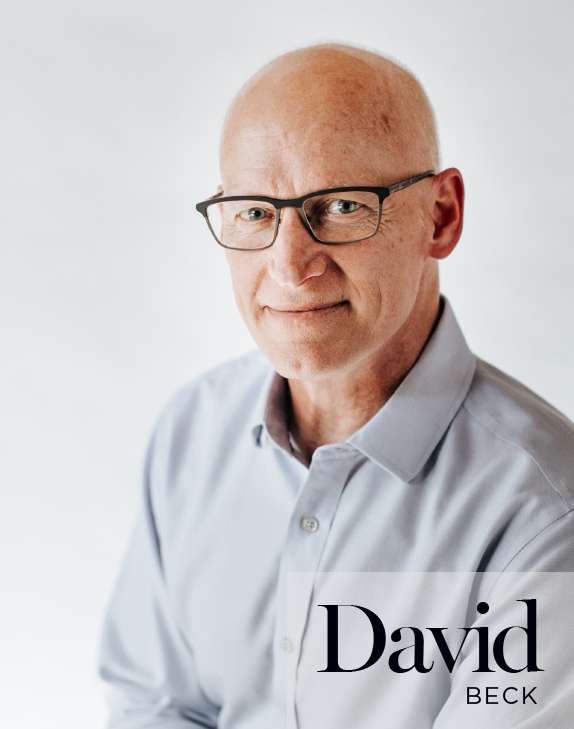
Once I started chemo, my eyes got blurrier than ever. It’s a common side effect. The other day I was making an appointment with the eye doctor, and I asked the receptionist if the doctor knows about how chemo affects one’s vision. She stopped typing, looked up at me, and said quietly, “Oh, I’m so sorry.” It was a compassionate response, and I appreciated it. But its somberness startled me. I thought, “Maybe I should be more miserable. Am I doing cancer wrong?”
Everyone I know is truly sorry I have cancer. I am sorry I have cancer. But there’s more to it than misfortune and misery. There’s a whole other side of the experience. The psalmist writes, “God draws near to the brokenhearted” (34:18). And when God draws near, even cancer is overshadowed.
Human beings are wired for joy, a state of being in which we are deeply happy, habitually grateful, and meaningfully connected to God and others. Joy is an attribute of God. It’s part of who he is. And when God shows up in someone’s life, joy happens (Galatians 5:22).
God is not stopped when cancer arises and rages in my body. Nor is joy. The irony is, joy can grow faster and deeper the more suffering we go through.
Maybe I should be more miserable. Am I doing cancer wrong?
I have never suffered like I have suffered this year. There were nights in February when I was writhing on the floor in excruciating pain in the wee hours of the morning. Calls to the night nurse. Digestive horrors. Six days in the hospital because it took them five days to get my pain under control with intravenous narcotics. Surgical procedures. A diagnosis of near-certain death. Losing twenty-three pounds because my body was literally starving itself to death. Chemo-induced physical changes that make me feel like a freak.
And that’s only a partial list. I could also talk about the emotional trauma of this year. It has been significant. Recently I’ve been acutely aware that my family members and I have a lot of built-up grief that needs to be processed.
The whole year has been marred by trauma and chaos. On January 1, I began a new call as lead pastor of Newport Covenant Church in Bellevue, Washington. We knew I wasn’t healthy, but we didn’t know what was wrong. I was installed on January 7, 2018, and one month later I was diagnosed with stage three pancreatic cancer. That means that the whole time I was interviewing with Newport, cancer was growing in my body. I thought, “Who starts a new ministry like this?”
Then there was the emergency relocation of my wife and youngest son, Nathaniel, to Seattle. He was a sophomore in high school in Sacramento, where I had been serving in ministry for the past seven years. Our plan was to let Nathaniel to finish out the school year and for me to go back to visit them a couple times a month. However, when I was diagnosed, all that suddenly changed. Susan and Nathaniel threw their essential belongings in the car and hurried north to be with me. They were plucked out of a life that felt normal and safe, and dropped with me into a disorienting shadowland where we were homeless for a season, and death lurked close by.
If I were narrating the story of my journey through cancer, I could tell only the miserable side and no one would bat an eyelash. But that would be to miss the other side of the experience—the avalanche of grace that has been dumped on me. When word got out that I had pancreatic cancer, notes, texts, cards, and messages came pouring in. Friends, family, and loved ones galvanized so strongly that I started calling them my “village.” They have prayed for me. In fact, through chain reactions starting in my village, thousands of people all over the world have prayed for me and still do. Everyone in my nuclear family has visited me. Pastoral colleagues and friends from Sacramento have come to Seattle to see me here. This year our oldest daughter, Lauren, and her husband and kids moved to Seattle. And this summer the final holdout, our middle child Spencer, moved here too. In early 2017, Seattle wasn’t even on our radar. Just over a year later, a surprise migration has happened and we are all together here.
And the people at Newport Covenant Church have been nothing short of miraculously generous. Over and over Susan and I have asked with amazement, “Who are these people?” I have been given space to heal rather than pressure to perform. The staff I work with has shown me undying compassion and provided the best therapy there is: laughter.
I have been loved and loved until I don’t know what to do anymore. Well, there’s one thing I know to do: be grateful. I’m more grateful than I’ve ever been. Also, I see God in a clearer light. He really does go ahead of me and pour grace upon me—often grace I didn’t ask for and didn’t see coming. God is good. Really good. Meticulously good. Joyfully good. Seeing God this way has made me more happy than I’ve ever been.
Yes, I have cancer—and I’m happy. That’s an objective fact. I am reading a book called Flourish, by Martin Seligman, about the psychology of human happiness. I took the happiness inventory and scored “happier” than about 97 percent of the people who take the test. I’m not trying to brag. This is actually how I feel. And I have the most lethal form of cancer there is.
Ironically, if I had taken the happiness test before I got sick, I would have scored lower. I was worrying a lot more, I was frustrated, and experientially I had a smaller view of God. So, although I have concerns about upcoming scans and treatment, I have joy. The statistics for pancreatic cancer are grim, but I truly believe I’m going to live through this whole ordeal. Either way, I will be joyful. I look around at God’s stunning generosity, and I am happy. I give and receive love like never before. How can I not be happy?
I have discovered that there are two sides to the cancer experience: suffering and grace. And I’ve learned that it’s possible for the grace to be greater than the suffering.
Rebecca Gonzalez
Rebecca Gonzalez is the executive director of operations for the Evangelical Covenant Church.
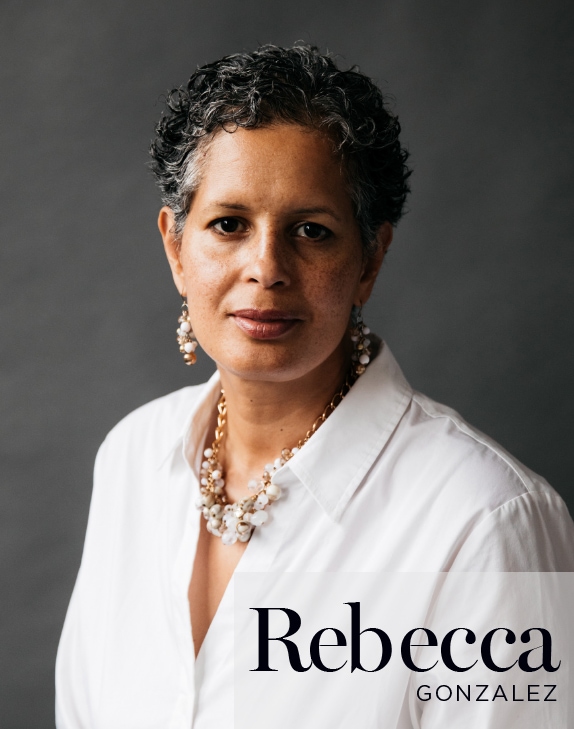
In the spring of 2017 I had lost all sense of boundaries. It was a season of transition on my team at work and I was working and responding to multiple demands and challenges resulting from shortages in staff. My stress level was high and I began feeling bad physically, so I decided to go the doctor.
I was encouraged when my blood work came back normal. “Nothing is wrong with you, you’re fine,” the doctor said. Then he asked me, “When was the last time you had an annual checkup?” I asked, “What annual checkup?”
In June I scheduled an appointment for a mammogram—my first. A few weeks later I received a letter that said I needed to come back. They told me it’s pretty routine to do that after your first time, so I made plans to return after an upcoming vacation.
On the first day of vacation I crashed and slept. The next day I opened my Bible and read Psalm 27. On the two following days I sensed something telling me to go back to Psalm 27, so I decided to stay with that psalm and see what the Lord had for me.
I focused on verse 4: “One thing have I desired of the Lord, that will I seek after; that I may dwell in the house of the Lord all the days of my life, to behold the beauty of the Lord, and to enquire in his temple” (KJV). Because I was coming out of that busy season, I thought God was inviting me to focus on those things and restoring me back to my devotion and walk with him. I focused on the words dwell, behold, and inquire over and over.
I decided to stay with Psalm 27 and see what the Lord had for me.
When I returned from vacation I went in for my appointment. I thought it would be short, but they asked, “Can you wait a little bit? We need to have a specialist look at this.” Then they asked if I had some extra time so they could run other tests and avoid another visit. I agreed, feeling nonchalant about it.
A health navigator came into the room and asked if she could pray for me. I said, “Sure, I don’t know what’s happening but that’s fine.”
After she prayed she told me that they were checking on a couple things. She explained the process but not really why they were doing all these exams. It wasn’t until they’d done an ultrasound and a biopsy that I finally asked, “What are they actually screening for?” And she told me: breast cancer.
The results came back as stage one cancer. By the time I met with the oncologist three weeks later, the tests showed that the tumor had grown. Now I was in stage two. It felt as if I had been given a death sentence for a crime I didn’t commit.
Because I had been reading Psalm 27 daily for three weeks before my diagnosis, I realized God had been preparing me and was before me. Before
I got to my storm or my valley of the shadow of death, God was already there. I was not walking into the unknown by myself—God was waiting for me, and I really felt that. Not only was he there for me, but he was preparing people and resources to support me. I didn’t have to put on boxing gloves and say, “I’m going to fight this.” I was learning to be open and surrender this season of my life to him and allow him to work. That was a different posture for me because I like serving, giving, helping other people. To be in a posture where I just have to surrender—it was a life lesson.
A couple months before the diagnosis my twelve-year-old son Daniel awoke in the middle of the night crying. “Mom, I had a nightmare,” he told me. “We were at a party room at our old church. Everybody was there and we were really happy and celebrating and all of a sudden…” He started crying again. “Mom, all of a sudden somebody shot a bullet and it came right into your heart and I don’t want you to die.” I said, “Oh Daniel, that’s a nightmare. Don’t worry about that.” I stayed with him and we prayed until he fell asleep.
Now I faced a low point. How would I tell my children, Daniel and Luiz, who was ten, that I had cancer? I had told my husband, Jorge, “I’ve lived a good life. I’m not worried about me.” But my kids?
Jorge and I sat down with Daniel in the living room and I said, “You know that God loves us, no matter what happens in this life? God is God, he doesn’t change. God is faithful and he is loving. But we want to tell you that Mami has to focus on being well and getting healthy.”
Daniel covered his eyes with his hands and started sobbing. I started to get teary. Should I tell him or not? Then he lifted his head up and he said, “Don’t tell me. Don’t tell me my dream is true. Don’t tell me you have cancer.” All three of us wept together and then prayed. It was the biggest gift God could give me because I did not have the emotional strength to tell him, but God revealed it to him.
One of my cousins gave me a colorful book about a kid and a mom going through the cancer journey. The first time I read it with Luiz I just showed him the pictures. The second time I paraphrased it like I was in that journey. The third time then we read it together and he asked questions. He had a friend in school whose grandmother was going through cancer so he started asking me questions based on his friend’s experience.
Every day throughout chemotherapy, radiation, and recovery, I read Psalm 27. When I couldn’t read I listened to an audio version or asked someone to read it to me. I looked up songs, sermons, and commentaries—anything focused on Psalm 27. I also read Scripture passages about God’s character and the elements of health and sickness, marking my Bible with Post-it Notes so I could easily turn to those verses. I drew more confidence from who God is than from any promise of actual healing.
Sometimes in my journey I really did sense that prayers were carrying me. Prayer from family, from strangers, from my friends at work, from my church community. People I didn’t even know were praying for me. There were times when I didn’t have the energy to pray, yet I would sense God’s Spirit with me and comfort as if to say, “Don’t worry. People are praying for you. I hear them.” Those prayers became my lifeline.
The other thing that sustained me was how the body of Christ mobilized to care for me. I was sick. I was hurting. I was in need. I was in despair and the church mobilized to care for my family and me—through meals, gifts, encouragement, texts.
I had my last chemotherapy treatment on November 27, 2017, my twentieth wedding anniversary. It was followed by surgery. When I came out of the anesthesia, I asked Jorge what they found. He said, “She says you’re clean. They couldn’t find anything.”
The tears started rolling down my face. That was the first sign of hope.
My doctors still recommended radiation as part of my preventative care. So my Lenten practice last spring was to go do radiation every day. It was thirty treatments throughout the forty days of Lent. On July 10, I had my post-treatment scans and they told me I’m all clear. I am cancer free.
I am grateful for every single day that I live. The reality is that all of us will experience death. The challenge is when the unknown and the unexpected play against the assurance that Christ loves us. I firmly believe that no matter what we go through, that doesn’t define God—our circumstances don’t define God, rather, our life and our experiences are shaped by who God is. He is faithful.
Mike FitzGerald
Mike FitzGerald was a Covenant minister who published two books of poetry before he died on April 15, 2018. He lived with glioblastoma until the age of sixty-five. These posts from his blog are reprinted here with permission from his wife, Cyndy.
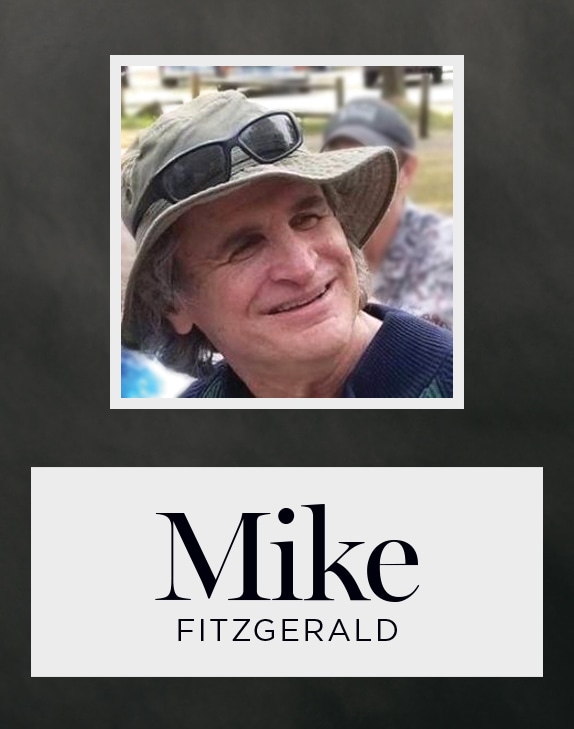
September 2017—I have feared death my whole life—now it is my constant companion. Maybe it always has been and I am only just recently more aware of it. Regardless, part of this journey has been about getting used to death as my unwelcome fellow traveler—my apologies to C.S. Lewis for stealing his wonderful chapter title, and for taking it totally out of context.
The days of my cancer journey are a mixed bag of experiences. They range from joy and gratitude for the life I have been privileged to live, to heart-wrenching sorrow and grief at the prospect of life coming to an end. There are days when I feel ready to go, and days where I can’t believe that I must. I still hold hope for healing, but not as much as I used to, due to the progression of the tumor. Fortunately, it only requires a mustard seed of faith! I hold in tension my hope to live, alongside the reality that I must get ready to die. I am not always able to shift between those gears.
What are the resources of my faith? Two things come quickly to mind: First, there is the constant presence of God, who I experience with every breath I take—each one a gift. Paying attention to this Breath is my main spiritual activity and anchor. Second, there is hope, both for healing and for resurrection. As a follower of Jesus, I have a strong belief in the Healer, even if a healing is not part of this cancer journey as it was in my first journey fifteen years ago. I also understand that death does not have the last word in my life. While I think the gospel is primarily about life here and now, I am also grateful for the hope of a beyond. Some speak of it with certainty. I prefer the language of hope—living hope.
So, while death is my unwelcome fellow traveler, I also have a couple of welcome fellow travelers—the hope I find in Jesus, and the grace of God I experience with each breath I take, including the last one, whenever it comes.
Early April 2018—The past few years we have been using new light bulbs. There seems to be a warmup period of gradually increasing wattage from when they are turned on until they reach full wattage. I hope the afterlife is not like this. I would like to be healed right away.
We don’t know what people know in the afterlife. Do they instantly know all they did not know on earth? Or is there a process of learning? It would be nice to know immediately, but perhaps we learn there as well.
For me, I hope we are able to read for pleasure, but not for data or information. I still haven’t read most of Dickens and would like to. Will the books be there? I certainly hope so.
I’m hoping that heaven holds an immediate wattage.
This will be my last blog post. Thanks to all of you who have followed it these past four years. I wish my health had permitted me to do more of it.


